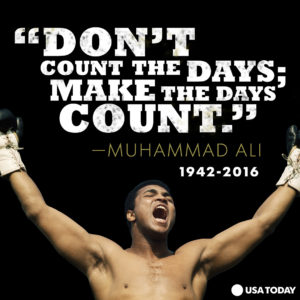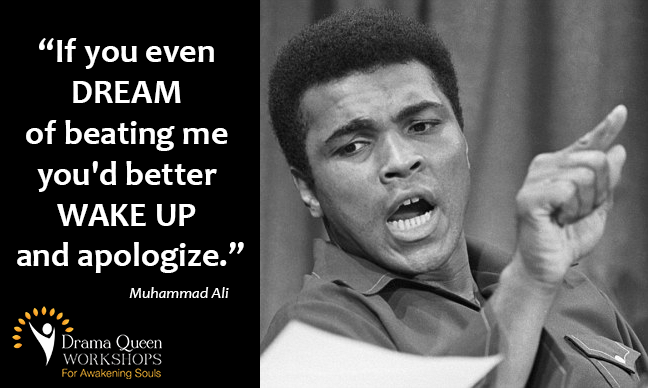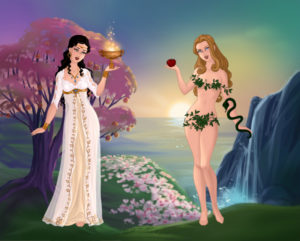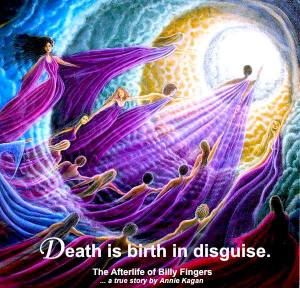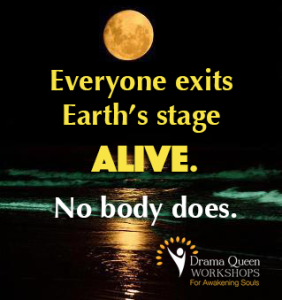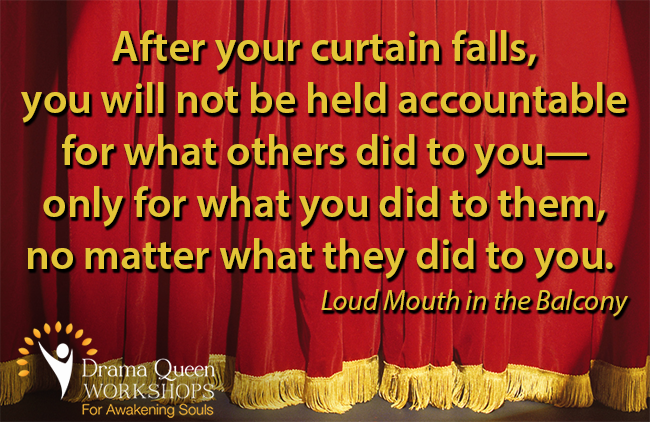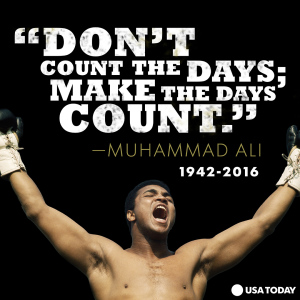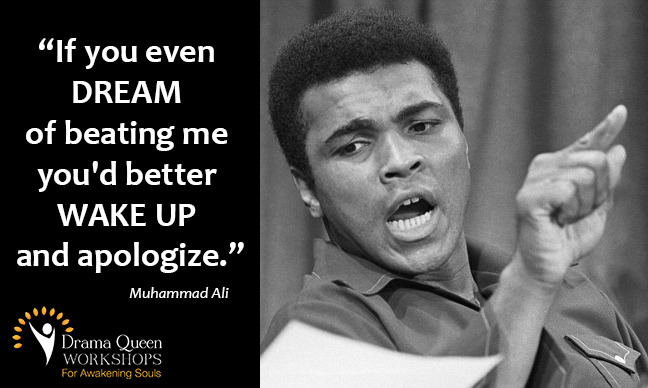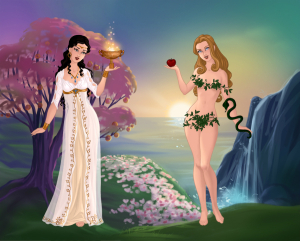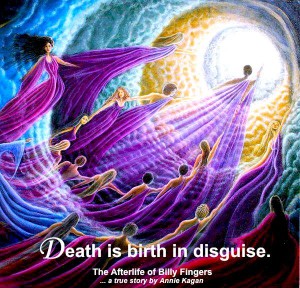 Muhammad Ali is among more than 110 celebrities who have exited Earth’s stage since New Year’s Eve 2015. Each gave us a fresh opportunity not only to embrace the reality of death, but to actually understand it.
Muhammad Ali is among more than 110 celebrities who have exited Earth’s stage since New Year’s Eve 2015. Each gave us a fresh opportunity not only to embrace the reality of death, but to actually understand it.
This is important. And as Ali demonstrated, if we don’t understand Death, we will not successfully navigate Life.
Ali understood both extraordinarily well, so well that he started planning his home-going services ten years ago. It was a beautiful, inclusive and meaningful production that mirrored the spirit of his time on Earth’s stage: powerful, entertaining, uplifting and unconditionally loving.
In her eloquent and poignant eulogy at Ali’s memorial service in his native Louisville on Friday afternoon, his wife Lonnie shared an insight from one of the planning sessions:
When the end came for him, he wanted us to use his life—and his death—as a teaching moment for young people, for his country, and for the world.
Throughout his time here, The Champ taught us by example…
- Fearlessly discard anything that no longer serves you—even if it’s your birth identity and the beliefs of your childhood.
- Embrace beliefs that resonate with your soul.
- Love unconditionally.
- Honor Self, honor All.
- Don’t let your story end with a defeat.
And with wisdom, he also taught us five additional lessons, in no particular order…
1. Do not fear Death. Plan for it.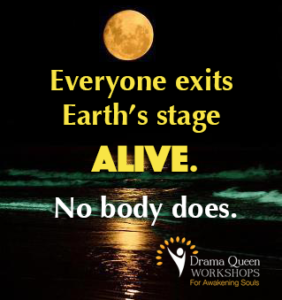
Most of us don’t want to discuss death. It frightens us. When a loved one is near the exit door, we pray—and we ask everyone we know—to pray for them to stay on this side. We do this because we don’t understand what God is. We do it because we don’t understand death. And we do it because we don’t understand that we are asking for God to obey our will and to disrespect the will of a soul who is ready to evolve to another experience.
Every soul who ever visited here has had an exit strategy. Though exceptional, the soul who came here to be Muhammad Ali was no exception to this truth. And he was wise enough to know that Earth is not Home. Not one immortal soul who came here has stayed. That was never any soul’s plan. So, he and his wife Lonnie, along with his closest advisors, began planning every detail of his final services a decade ago. It was two years in the making.
But the actual preparation for his last scene took more than six decades, because he focused on this dynamic Life principle…
2. Protect your soul.
[Ali] awoke every morning thinking about his own salvation. And he would often say, “I just want to get to heaven. And I’ve gotta do a lot of good deeds to get there,” Lonnie Ali
Many believe that heaven is a physical place beyond the 100-200 billion galaxies in the known physical universe, and that we must be saved from the inhumane and unending torture threatened by a wrath-filled, sadistic god who has zero tolerance for human error in those whom He created as sinful.
Why do you think the Divine would even become directly involved with such negative energy?
I ask you to think a higher thought about God. Consider the possibility that God is Love, and that this is not the way Love treats its beloved. Love is fair and just. Life is fair and just. God would not have created it any other way.
Consider the possibility that there is a mechanism in place that enables God to enjoy Life without huffing and puffing, and acting like Satan. That mechanism is karma.
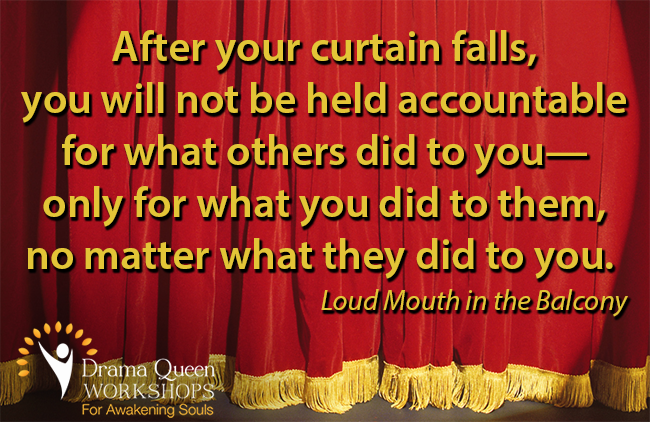 With karma, God needs to do nothing, yet no one gets away with anything. With karma, whatever you do will be done to you. Karma is why Drama Queen Workshop Principle #1 is: Life is always fair.
With karma, God needs to do nothing, yet no one gets away with anything. With karma, whatever you do will be done to you. Karma is why Drama Queen Workshop Principle #1 is: Life is always fair.
With karma, we are not excessively punished for our negative, hurtful behaviors, we are equitably punished by them. We are not blessed for our good deeds, but blessed by them. With karma, the only thing we need to be saved from is the heavy, negative energy that attaches to the immortal soul, the True Self.
This gooey blob of energy attaches to us whenever we do not act with love, and every time we do things to others that we would not want done to ourselves. Its negative energies attract matching negative energies to us. We receive exactly what we’ve given—not more or less.
Ali vigilantly protected his soul. He understood, better than most, that the acts performed on Earth’s stage become the blessings or the burdens of the immortal soul, not the body costume that soul is temporarily wearing. He wanted heaven.
I imagine that he has now discovered that heaven is not a place, but a peace that results from treating others the way you want to be treated. I am thrilled that this peace is now known by the immortal soul who temporarily played the role of Muhammad Ali, a human who saw others through the deeper, wiser eyes of the soul. He urged us to call forth that ability when he said…
3. Don’t count the days; make the days count.
Each and every day, Muhammad Ali was consciously aware of his outcomes, the consequences of his actions. He was consistently on alert for any negative energy his temporary physical self would attract to his Immortal Self.
According to his wife, Ali apparently wanted to leave here a more evolved version of the soul who arrived 74 human years earlier. He wanted to exit the stage door of Earth’s theater, head high, shoulders back, arms raised in victory and immensely proud of the role he’d played here.
And he wanted the audience on to its feet, screaming for more—because, after all, he was the Greatest of All Time.
4. Don’t take yourself seriously.
If you have all eternity to live, and a tremendous grasp on how Life works, why not seize every opportunity available to have some fun? Anyone who observed Muhammed Ali would agree that he was as quick-witted as he was light-footed. He was as much a champ of practical jokes outside of the ring as he was with the knock-out punch inside it. He was braggadocious, outrageously funny, and totally lovable because of it.
And let’s not forget, he was “pretty.” No one captured Ali’s keen sense of humor better than comedian Billy Crystal, whose ingenious impersonations of The Champ allowed Ali to laugh, perhaps howl, at himself.
As Crystal shared in his hilarious salute at Ali’s memorial service, the first time Ali saw Crystal mimic him, Ali adopted him as his “little brother.” For 42 years, they remained family, and loved each other as brothers. It mattered not that one was Muslim and the other Jewish.
Part of Ali’s greatness was his ability to see past the physical costume to the soul that was animating that costume, the soul that breathed life into those human nostrils. How much joy would he have missed if his Jewish little brother had not been in his life?
How much joy do we miss by shutting out others due to superficialities such as race, religion, gender-orientation or even income? Ali wanted more for us, and so he advised…
5. See the presence of God and the good soul in every man.
Onto the stage at his final service, Ali summoned eight leaders from different faiths whom he loved and who loved him, as evidenced in the rousing tribute from Rabbi Michael Lerner. It dramatically symbolized Ali’s belief in the Oneness of the human family and his embrace of all God’s people.
Ali didn’t have to share the same religious beliefs as his friends; his friends didn’t have to share his. Beliefs can trip us up. They can separate us, limit our vision, prevent us from living our soul purpose, and they can stunt our evolutionary growth.
Beliefs can make us fear death, so I’d like to advance this discussion.
Your Desktop Workshop on… Death
In Drama Queen Workshops, we discuss death as an important and necessary exit strategy. Souls cannot grow if we do not leave. So why does it scare us?
If we were taught to seek our own answers, instead of pressured to blindly accepting others’, we would quickly discover the reason we’re afraid of death: ancient myths that have survived for millennia. Perhaps the best known is Greek mythology’s “Pandora’s Box.”
The mythical Pandora was the first female human on Earth, created by the gods with earth and water. In modern parlance, Pandora was your garden variety mudpie. (Don’t snicker that any ancient Greeks believed humans can be formed from dirt. We all know 21st century folks who not only believe this, but insist that God holds them responsible for what the mudpie did.)
As the story goes, Pandora was given a container and told not to open it. Of course, you know what happens when you tell a child, especially a mudpie child, not to open something: Pandora’s curiosity won the day.
When she lifted the lid, Death and other evils burst forth into the world. When she quickly slammed it shut, Hope—which, oddly enough, had coexisted in the dark with evil—was trapped inside. One would think that hope would have pushed everyone else aside at the first chance to break free. But no. Poor dear.
On that cheery note, we have a riff on that tale: the story of another disobedient woman’s curiosity. Eve also had mudpie DNA, since she was created by extracting a rib from a male who’d been formed with earth and water. In this fantastical story, when Eve defied the Lord God’s order not to eat the Fruit of Knowledge, Death and other evils were introduced into the world.
Aside from the obvious misogyny and the implausible claim that dirt and water are gestational components of human life, the common denominator in these stories is that:
- God cruelly and unfairly makes the entire world suffer for the mistakes of one person.
- Death is a punishment imposed by an angry, vengeful God.
- Death is an evil.
But what if it is not?
Everyone wants to go to heaven; no one wants to die
Everything physical changes, ages and dies. That is by design. Physical life is not eternal, folks. Physical is merely a form of life. Earth is not Home. It is simply the only home our human body costumes know.
 We have merely forgotten that we’re not our costumes. Consequently, we mourn when a character exits Earth’s stage. We cry that they left too soon or were too young to die. We deny the possibility that life and death are purposeful, that every soul who visits Earth comes here for a reason, and that each soul has given itself a timetable for fulfilling its purpose.
We have merely forgotten that we’re not our costumes. Consequently, we mourn when a character exits Earth’s stage. We cry that they left too soon or were too young to die. We deny the possibility that life and death are purposeful, that every soul who visits Earth comes here for a reason, and that each soul has given itself a timetable for fulfilling its purpose.
Now hear this: Not one soul stays on Earth’s stage too long or leaves too soon. Everyone has an exit strategy.
Death is indisputably inevitable for every physical body. I might add that death is obviously desirable, because not one soul has ever visited Earth with the intention of wearing a human body costume forever.
Remember what The Champ said, and make each day here count.

